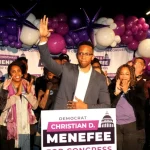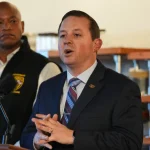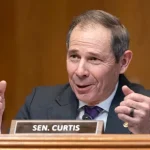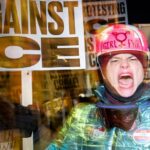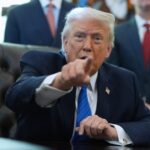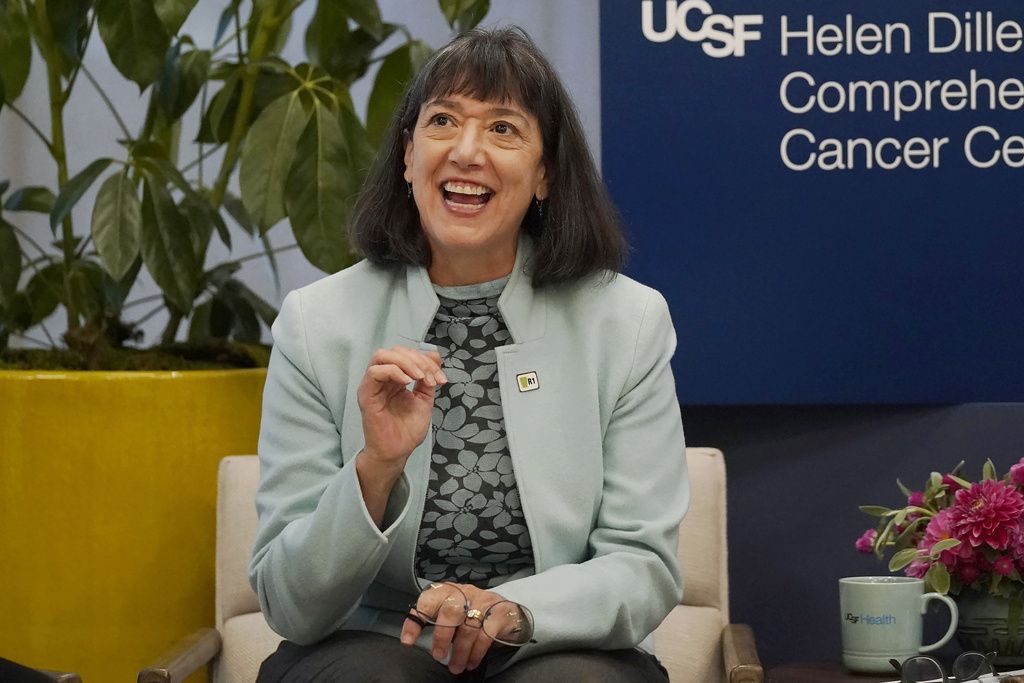

House Republicans are examining evidence that top leadership at the National Institutes of Health intentionally avoided compliance with Freedom of Information Act requests and other oversight efforts during the early stages of the COVID-19 pandemic.
Select Subcommittee on the Coronavirus Pandemic Chairman Brad Wenstrup (R-OH) wrote to current NIH Director Monica Bertagnolli on Tuesday requesting more information regarding the agency’s document retention, personal email, and FOIA policies.
His inquiry follows the revelation that the former senior adviser to Dr. Anthony Fauci at the National Institute of Allergy and Infectious Diseases, David Morens, used his personal email address to avoid FOIA and received assistance from the agency’s “foia lady” to obfuscate public records requests.
“This evidence taken together suggests a conspiracy at the highest levels of NIH and NIAID to avoid public transparency regarding the COVID-19 pandemic,” Wenstrup wrote to Bertagnolli. “If what appears in these documents is true, this is an apparent attack on public trust and must be met with swift enforcement and consequences for those involved.”
In an email chain between Morens and former NIH employee Gerald Keusch in February 2021, Morens referenced the so-called “foia lady” instructing him how to delete emails from NIH records.
Keusch advised Morens to use his personal email address to discuss sensitive information regarding COVID-19 in order to protect their mutual friend Peter Daszak, the head of EcoHealth Alliance, which had funded coronavirus research in Wuhan, China, using an NIH grant.
“You are right, i need to be more careful,” Morens responded to Keusch. “However, as i mentioned once before, i learned from our foia lady here how to make emails disappear after i am foia’d but before the search starts, so i think we are all safe. Plus i deleted most of those earlier emails after sending them to gmail.”
Neither the emails nor the letter from Wenstrup reference the NIAID FOIA office by name. The chairman of the full Oversight Committee, James Comer, however, confirmed with Morens that the “foia lady” was Margaret Moore, who has subsequently retired from the agency.
Morens told the select subcommittee when testifying in an open hearing last week that he had been in contact with the public records officer for NIAID but she had said there was no way to delete emails permanently from NIH records.
Fauci’s top adviser also told the subcommittee last week that he did not realize emails from his government account constituted federal records.
Evidence also uncovered by the subcommittee indicates that NIAID staff routinely misspelled keywords in their day-to-day email correspondence, such as COVID and EcoHealth, in order to avoid FOIA requests with specific keyword searches.
“After an agency receives a FOIA request, it is common to employ key word search terms to identify and subsequently produce responsive documents to the requester,” Wenstrup wrote to Bertagnolli. “However, it can be undermined by government employees that strategically use language to avoid key word searches.”
The NIH did not respond to the Washington Examiner’s request for comment on the letter.
Although the select subcommittee is sharply divided on the origins of COVID-19, there is strong bipartisan agreement that accountability for potential corruption in government health agencies is essential to restoring public trust.
A spokesperson for the subcommittee Democrats told the Washington Examiner that they “consider recordkeeping requirements to be an important tool for promoting transparency to American taxpayers so that they can continue to maintain the highest degree of confidence in our nation’s premier scientific and public health agencies.”
The leading Democrat on the subcommittee, Raul Ruiz (D-CA), said in his opening statement at Morens’s hearing last week that the adviser’s behavior “willingly betrays decades of dedication, diligence, and decorum for the thousands of federal scientists and public health workers who came before [him].”
“It is not anti-science to hold you accountable for defying the public’s trust and misusing official resources,” Ruiz said to Morens.
The legal counsel for Morens did not respond to the Washington Examiner’s request for comment.
Wenstrup requested a briefing from the NIH regarding the agency’s records policy to occur no later than June 4, one day after Fauci is scheduled to testify before the subcommittee.

